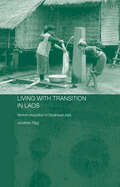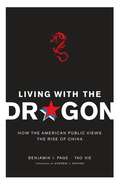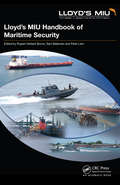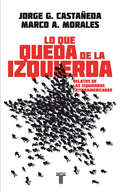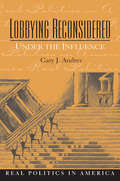- Table View
- List View
Living with Moral Disagreement: The Enduring Controversy about Affirmative Action
by Michele S. MosesHow to handle affirmative action is one of the most intractable policy problems of our era, touching on controversial issues such as race-consciousness and social justice. Much has been written both for and against affirmative action policies--especially within the realm of educational opportunity. In this book, philosopher Michele S. Moses offers a crucial new pathway for thinking about the debate surrounding educational affirmative action, one that holds up the debate itself as an important emblem of the democratic process. Central to Moses's analysis is the argument that we need to understand disagreements about affirmative action as inherently moral, products of conflicts between deeply held beliefs that shape differing opinions on what justice requires of education policy. As she shows, differing opinions on affirmative action result from different conceptual values, for instance, between being treated equally and being treated as an equal or between seeing race-consciousness as a pernicious political force or as a necessary variable in political equality. As Moses shows, although moral disagreements about race-conscious policies and similar issues are often seen as symptoms of dysfunctional politics, they in fact create rich opportunities for discussions about diversity that nourish democratic thought and life.
Living with Religious Diversity
by Sonia Sikka Lori G. Beaman Bindu PuriLooking beyond exclusively state-oriented solutions to the management of religious diversity, this book explores ways of fostering respectful, non-violent and welcoming social relations among religious communities. It examines the question of how to balance religious diversity, individual rights and freedoms with a common national identity and moral consensus. The essays discuss the interface between state and civil society in ‘secular’ countries and look at case studies from the the West and India. They study themes such as religious education, religious diversity, pluralism, inter-religious relations and exchanges, dalits and religion, and issues arising from the lived experience of religious diversity in various countries. The volume asserts that if religious violence crosses borders, so do ideas about how to live together peacefully, theological reflection on pluralism, and lived practices of friendship across the boundaries of religious identity-groupings. Bringing together interdisciplinary scholarship from across the world, the book will interest scholars and students of philosophy, religious studies, political science, sociology and history.
Living with Separation in China: Anthropological Accounts
by Charles StaffordFirst Published in 2004. Routledge is an imprint of Taylor & Francis, an informa company.
Living with Transformation: Self-Built Housing in the City of Dhaka
by Tareef Hayat KhanThis book describes and analyzes the phenomenon of spontaneous transformation in self-built houses in the context of developing countries. After describing briefly the history of self-built houses and the phenomenon of transformation around the world, it focuses on its context, the city of Dhaka. Firstly it describes the physical patterns of spontaneous transformation. Then it explains the explicit reasons behind those transformations. Finally, it carefully unveils the implicit values that are hidden behind those explicit reasons. The entire book is an ethnographic journey, which not only expresses unique stories of living with transformation, but also captivates the reader throughout with its compelling way of qualitative judgment.
Living with Transition in Laos: Market Intergration in Southeast Asia (Routledge Contemporary Southeast Asia Series #Vol. 5)
by Jonathan RiggLaos - the Lao People's Democratic Republic - is one of the least understood and studied countries of Asia. Its development trajectory is also one of the most interesting, as it moves from state, or perhaps more appropriately subsistence, to market. Based on extensive original research, this book assesses how economic transition and marketisation are being translated into progress (or not) at the local level, and at the resulting impact on poverty, inequality and livelihoods. It concludes that the process of transition in fact contributes to the growth of poverty for some people, and shows how people manage to cope in very unfavourable circumstances.
Living with Water: Development and Urbanism in South Asia
by Mohammed Mahbubur Rahman Md. Nawrose FatemiLiving with Water explores the perennial, dynamic relationship between water and the built environment in South Asia. This interdisciplinary survey of the unique urban and ecological landscapes of the region presents a diverse selection of cities and projects, and offers practical, contextual strategies for the design and protection of these sites against emergent impacts of climate change and population growth. Water resources in South Asia are some of the most vulnerable to the effects of global warming. In the many historic urban centres that have grown over time along the rivers and waterfronts of the region, deteriorating water systems and rapid population expansion have contributed to problems such as water insecurity, exposure of built structures to weather damage, floods, and erosion. Case studies drawn from Bangladesh, India, Pakistan, and Sri Lanka illustrate a range of contemporary and traditional approaches to living with water within the ecosystems, floodplains, wetlands, waterfronts, river systems, and water networks of the region. Chapters authored by architects, planners, historians, sociologists, geographers, and environmentalists combine insights into analytical methods and processes of urban planning and development, with critical attention to the importance of cultural heritage, vernacular construction, traditional water systems, and indigenous knowledge in shaping climate-resilient built and natural environments. This context supports resilient ecology and a sustainable approach to building and resource management, offering guidance in the creation of water-sensitive development, integrated urban design, wetlands restoration, and more. Living with Water is an essential read for researchers and professionals in architecture, urban planning, water management, environmental conservation, real estate development, tourism, and local governance, and will appeal to broad range of readers interested in the history, geography, and culture of South Asia.
Living with the Bomb: American and Japanese Cultural Conflicts in the Nuclear Age (Japan In The Modern World Ser.)
by Mark Selden Laura E. HeinThe development and use of the atomic bombs at Hiroshima and Nagasaki number among the formative national experiences for both Japanese and Americans as well as for 20th-century Japan-US relations. This volume explores the way in which the bomb has shaped the self-image of both peoples.
Living with the Dragon: How the American Public Views the Rise of China (Contemporary Asia in the World)
by Tao Xie Benjamin PageIt is widely believed that most Americans not only distrust but also despise China. Considering the country's violent political history, unprecedented economic rise, and growing military capabilities, China has become America's strongest market competitor and arguably the most challenging global threat to the United States.Nevertheless, a full consideration of American opinion proves the opposite to be true. Carefully analyzing all available polls and surveys, Benjamin I. Page and Tao Xie find most Americans favor peaceful engagement with China. The public view has been surprisingly coherent and consistent, changing only in response to major events and new information. While a majority of Americans are not happy that China's economy is projected to become as large as that of the United States, they are prepared to live with it. "Unfair" Chinese trade practices and their impact on American jobs and wages are a concern, along with the quality and safety of Chinese-made goods. However, Americans favor free trade with China, provided it is tempered with environmental and workplace protections. They also believe that the United States should "balance" Chinese power through alliances with neighboring countries, such as Japan. Yet they oppose military action to defend Taiwan. Page and Xie examine these opinions in relation to facts about China and in light of current U.S. debates on diplomacy and policy.
Living with the Party: How Leisure Shaped a New China
by Yifan ShiThis book explores the subcultures, cultural trends and regulations of leisure and subcultures among young people in Beijing from 1949 to the 1980s. It complicates our understanding of the successes of the CCP and the nature of those successes—more a synergy or synthesis than victory over society or defeat. It argues that while the CCP aimed to direct the most private sphere in people’s everyday life (i.e., leisure), it did not achieve this goal by coercive means, but by appealing ways through organized leisure activities. This book suggests that although elements of youth subcultures can be observed throughout the Mao era, we should not treat them as a way of passive resistance. Instead, we must position these subcultures between different layers of the Party’s leisure regulation to examine what the CCP actually achieved. Many people who engaged in subcultures defied the blatant politicization of their leisure, some might have defied the process of collectivization, but few defied the process of institutionalization during which people did not find state intervention contradictory to their own way of pleasure-seeking. This book also suggests that instead of regarding the Deng Xiaoping era as a breakaway from Maoist interventionist rule, we need to see the historical continuity as revealed by the Party’s uninterrupted policy of leisure regulation. Thought provoking and at times amusing, this book will interest sinologists, historians, and scholars of China's social form.
Living with the UN: American Responsibilities and International Order
by Kenneth AndersonInternational legal scholar Kenneth Anderson analyzes US-UN relations in each major aspect of the United Nations' work-security, human rights and universal values, and development-and offers workable, practical principles for US policy toward the United Nations. He addresses the crucial question of whether, when, and how the United States should engage or not engage with the United Nations in each of its many different organs and activities, giving workable, pragmatic meaning to "multilateral engagement" across the full range of the United Nations' work.
Living without a Constitution: Civil Rights in Israel
by Daphna SharfmanCovering the history of Israel since its birth, this comprehensive discussion focuses on the historical, ideological and political determinants of the civil rights issues within Israel. Important topics covered include the historical and ideological roots of Israeli democracy; the problems of a collective society during the establishment of a democratic state; the legal and political attitudes towards human rights in the Occupied Territories and the implications of these attitudes for the peace process; the dilemma of a democracy in a state of war; and problems of democracy versus national security. The author makes use of interviews with prominent national policy makers.
Livy (Routledge Revivals)
by Kenneth QuinnFirst published in 1971, Livy is a collection of essays that deals with Livy’s work and its influence on the scholarship of Western Europe. The monumental nature of Livy’s History makes it a source of material for all those interested in the means by which Rome grew into an Imperial power and in the institutions that made her great. Later generations have also sought in Livy’s pages for some magic formula that they could apply to the management of their own cities. The volume includes three chapters on the surviving portions of Livy, one on the history of Livian scholarship in Germany, and – commemorating the Machiavelli quincentenary – one on Livy and Machiavelli. There are also chapters on Livy’s influence on Montesquieu, on the use made of Livy by Macaulay, and on the Florentine Manuscripts of Livy which were such prized possessions in the sixteenth century. This book will be of interest to students of classical literature, history and philosophy.
Livy’s Political Philosophy
by Ann VasalyThis volume explores the political implications of the first five books of Livy's celebrated history of Rome, challenging the common perception of the author as an apolitical moralist. Ann Vasaly argues that Livy intended to convey through the narration of particular events crucial lessons about the interaction of power and personality, including the personality of the Roman people as a whole. These lessons demonstrate the means by which the Roman republic flourished in the distant past and by which it might be revived in Livy's own corrupt time. Written at the precise moment when Augustus' imperial autocracy was replacing the republican system that had existed in Rome for almost 500 years, the stories of the first pentad offer invaluable insight into how republics and monarchies work. Vasaly's innovative study furthers the integration in recent scholarship of the literary brilliance of Livy's text and the seriousness of its purpose.
Llamando a las puertas de la revolución: Antología
by Karl MarxLos mejores libros jamás escritos. «El sistema actual de subordinación del trabajo al capital, sistema despótico que lleva a la pobreza, puede ser sustituido con un sistema republicano y bienhechor de asociación de productores libres e iguales.» Esta amplia antología de textos -en la que se incluye íntegramente el Manifiesto comunista- nos muestra la evolución del pensamiento del filósofo y revolucionario desde la ingenuidad y el idealismo conceptual de sus primeros escritos como poeta y narrador, hasta la elaboración de los conceptos -capital, lucha de clases, plusvalía, condiciones materiales, proletariado, revolución obrera- que han determinado y determinan, desde su puesta en práctica en la Revolución de 1917 en Rusia, nuestra historia. Constantino Bértolo, a cargo de la edición, nos muestra al Marx activista y desconocido junto al tantas veces citado procurando, ante todo, que ambos se dirijan, de manera directa y sencilla, a las nuevas generaciones de lectores que se acercan por primera vez a su pensamiento. Para afirmar o disentir.
Lloyd George and the Generals (Military History and Policy)
by David R. WoodwardThe frustrating stalemate on the western front with its unprecedented casualties provoked a furious debate in London between the civil and military authorities over the best way to defeat Germany. The passions aroused continued to the present day. The mercurial and dynamic David Lloyd George stood at the centre of this controversy throughout the war. His intervention in military questions and determination to redirect strategy put him at odds with the leading soldiers and admirals of his day.Professor Woodward, a student of the Great War for some four decades, explores the at times Byzantine atmosphere at Whitehall by exhaustive archival research in official and private papers. The focus is on Lloyd George and his adversaries such as Lord Kitchener, General Sir William Robertson, and Field Marshall Sir Douglas Haig. The result is a fresh, compelling and detailed account of the interaction between civil and military authorities in total war.
Lloyd's MIU Handbook of Maritime Security
by Peter Lehr Sam Bateman Rupert Herbert-BurnsManaging the ever-changing nature and cross-disciplinary challenges of the maritime sector demands a complete understanding of the special characteristics of the maritime space. The complexity of the operations of ships, ports, shipping companies, and naval and coast guard maritime security operations as well as the economic significance and the in
Lo mejor del amor: Por qué funciona el kirchnerismo
by Roberto CaballeroRoberto Caballero recorre todas las dimensiones del fenómeno kirchnerista en un libro inteligente y atrapante. Una lectura ineludible para comprender el desarrollo del movimiento que transformó la política argentina del siglo XXI. Una historia político-sentimental del movimiento que transformó la Argentina del siglo XXI. El kirchnerismo emergió desde Santa Cruz como un fenómeno político singular en la historia argentina. Tres décadas después ha consolidado una identidad nacional de extraordinaria vitalidad. ¿Cómo se explica que haya sobrevivido, en tiempos líquidos y de vértigo constante? ¿Qué puntos de inflexión definieron los distintos momentos de su desarrollo? ¿Es el kirchnerismo patagónico idéntico al actual? ¿De qué manera logró sortear la demonización mediática y el acoso judicial contra sus principales referentes? ¿Cómo se sostuvo en un escenario geopolítico de avances de las derechas neoliberales? ¿Qué atributos lo caracterizarán en la construcción de esta nueva etapa? Roberto Caballero recorre todas las dimensiones del kirchnerismo en un libro inteligente y atrapante. Y revela de qué modo una parte de la sociedad conquistó, y sigue conquistando, los sentidos, las libertades y los derechos que deseaba concederse para llegar a ser más plural y más feliz.
Lo que aprendí viviendo
by Eleanor RooseveltLas espléndidas páginas de Lo que aprendí viviendo no pretenden ser unas memorias al uso. Tampoco un manual de autoayuda. En ellas se reúnen las palabras de una mujer sabia que caminó despacio, pisó fuerte y llegó lejos, sonriendo. «Nadie me hará sentir inferior sin mi consentimiento.» Bastan estas palabras de Eleanor Roosevelt para darse cuenta de que detrás de su sonrisa afable había un espíritu fuerte y combativo, dispuesto siempre a aprender algo nuevo y a luchar por una causa justa. Cuando escribió Lo que aprendí viviendo corrían los años sesenta; Eleanor ya se había retirado de la vida pública y vivía rodeada de hijos, nietos y amigos. Quedaban lejos sus años como primera dama de la Casa Blanca, pero aún le sobraba energía para contar sus experiencias. No le costó confesar que había sido una chica tímida, a menudo ignorante de los temas que se comentaban en las conferencias y banquetes a los que acudía con su marido, pero sus ganas de saber y el propósito de no quedarse atrás le ayudaron a seguir adelante. Con el pasar del tiempo también descubrió que nadie se convierte en heroína de la noche a la mañana: hay que andar paso a paso y echar una pizca de humor a la vida para descubrir que un problema no es tal si lo tomamos como un reto, que nuestro tiempo es valioso y hay que disfrutarlo, y que podemos encontrar un espacio propio aunque estemos rodeadas de funcionarios, cenando con John Fitzgerald Kennedy o charlando con Frank Sinatra.
Lo que diga tu dedito
by Max Kaiser Paco CalderónManual ciudadano para indecisos o decepcionados Este no es un libro de texto ni un aburrido análisis de la terrible realidad: es un instrumento de batalla. 30 conceptos esenciales que todo ciudadano debe conocer, entender y dominar 1 historia de cómo llegamos aquí 150 argumentos sencillos y contundentes para convertirte en ese dolor de cabeza de los ignorantes ¡Y todos debidamente ilustrados por 65 cartones de Calderón!
Lo que pasó
by Hillary Rodham Clinton“Una cautivadora obra, maravillosamente sintetizada, que no se puede soltar” (Slate). Best seller #1 del New York Times y el Libro del Año #1 de No-ficción de la revista Time: El tomo de memorias más personal de Hillary Rodham Clinton hasta ahora sobre la elección presidencial de 2016.En este libro de memorias “cándido y tragicómico” (The New York Times), Hillary Rodham Clinton revela lo que pensaba y sentía durante una de las más controversiales e impredecibles elecciones presidenciales de la historia. Nos lleva dentro de una experiencia personal intensa de haber sido la primera mujer nominada para presidente por un importante partido en una elección marcada por ira, sexismo, excitantes altas y exasperantes bajas, giros más raros que en una obra de ficción, interferencia rusa, y un opositor que violó todas las reglas. “En su obra más emocionalmente cruda” (People), Hillary describe la experiencia de su candidatura para presidente contra Donald Trump, los errores que cometió, cómo ha lidiado con una traumática y devastadora derrota, y cómo encontró fuerzas para levantarse después. Les cuenta a los lectores lo que requirió poder sobreponerse: los rituales, las relaciones, y lecturas que la ayudaron a superarlo todo y lo que la experiencia le enseñó acerca de la vida. En este “manifiesto feminista” (The New York Times), ella habla de los desafíos de ser una mujer fuerte en el ojo público, las críticas sobre su voz, su edad y su apariencia, y la doble moral que confrontan las mujeres en la política. A la vez que ofrece una “vigorizante... guía de nuestro escenario político” (The Washington Post), Lo que pasó expone cómo la elección de 2016 resultó marcada por un asalto sin precedente contra nuestra democracia por un adversario extranjero. Analizando la evidencia y atando cabos, Hillary muestra simplemente lo peligrosas que son las fuerzas que moldearon el resultado, y por qué los americanos necesitan entenderlas para proteger nuestros valores y nuestra democracia en el futuro. La elección de 2016 no tuvo precedente y fue histórica. Lo que pasó es el recuento de esa campaña, ahora con un epílogo que muestra cómo Hillary forcejeó con muchos de sus peores miedos que se están haciendo realidad en la Era de Trump, mientras encontraba esperanza en un surgimiento de activismo cívico, mujeres postulándose a cargos, y jóvenes marchando en las calles.
Lo que queda de la izquierda
by Jorge G. Castañeda¿La izquierda es una opción para América Latina? Jorge G. Castañeda y Marco A. Morales reúnen a un grupo de expertos en las izquierdas latinoamericanas para realizar un diagnóstico del presente y el futuro de esta opción política, desde el populismo chavista de Venezuela hasta la izquierda perfectamente orientada de Chile. Asimismo, ellos responden tres preguntas fundamentales: ¿por qué razón América Latina ha optado por la izquierda en los últimos años?, ¿se puede pensar que todas las izquierdas son iguales? y ¿cuál es el balance de las izquierdas frente a las opciones de centro y derecha? ¿La izquierda es una opción para América Latina? Jorge G. Castañeda y Marco A. Morales reúnen a un grupo de expertos en las izquierdas latinoamericanas para realizar un diagnóstico del presente y el futuro de esta opción política, desde el populismo chavista de Venezuela hasta la izquierda perfectamente orientada de Chile. Asimismo, ellos responden tres preguntas fundamentales: ¿por qué razón América Latina ha optado por la izquierda en los últimos años?, ¿se puede pensar que todas las izquierdas son iguales? y ¿cuál es el balance de las izquierdas frente a las opciones de centro y derecha?
Lobby: Cómo se construye (el verdadero) poder detrás del poder
by Julián Maradeo Ignacio DamianiLos autores exponen la matriz de intereses que dominan la Argentina y que conocemos como lobby: la Iglesia, los sindicatos, las corporaciones empresarial y financiera, la política y el poder judicial. Esta red imperceptible no se arma en la oscuridad ni en reuniones exóticas. Se trata de relaciones. ¿Qué es el poder? ¿Cuál es su naturaleza en la Argentina del siglo XXI? ¿Mediante qué mecanismos se construye? ¿Cómo lo acumulan y conservan las corporaciones? ¿Cómo controlan los daños? ¿Qué camino recorren los que mandan? ¿Qué dotes hay que poseer para ser el líder? ¿Cómo equilibran la relación/tensión interna y las negociaciones con otros actores? ¿Qué cambia en las formas de relacionarse -nunca en el fondo- con el paso de un gobierno conformado por políticos a otro compuesto por ejecutivos? ¿Cómo interpelan al resto de la sociedad para que un interés particular aspire a convertirse en el de todos? Empresarios que invierten en el momento adecuado para los tiempos políticos. Obras públicas cartelizadas. Banqueros-instrumento para las fortunas que desaparecen tras la bruma off shore. Banqueros que reclaman seguridad jurídica. Un juez que duerme un expediente. Fiscales que hacen caso omiso de pruebas que perjudican a X y realzan otras que afectan a Y. La familia judicial y los padrinos. Holdings de medios de comunicación que demonizan a funcionarios de cualquiera de los tres poderes o ponderan negocios que nadie vio pero ya tienen dueño. Familiares desperdigados por toda la estructura estatal. Los ejecutivos y la puerta giratoria. Políticos que gruñen en público, pero en privado se someten virtuosamente. Teléfonos pinchados y el espionaje punteril. Un sacerdote que adoctrina desde el púlpito ante la devota mirada de los fieles. Un papa que dispara mensajes, a priori universales, pero que están teledirigidos. Un sindicalista que pega con la izquierda y acumula y recauda con la derecha. El Senado spa y el balneario municipal de Diputados.
Lobbying America: The Politics of Business from Nixon to NAFTA (Politics and Society in Modern America #99)
by Benjamin C. WaterhouseLobbying America tells the story of the political mobilization of American business in the 1970s and 1980s. Benjamin Waterhouse traces the rise and ultimate fragmentation of a broad-based effort to unify the business community and promote a fiscally conservative, antiregulatory, and market-oriented policy agenda to Congress and the country at large. Arguing that business's political involvement was historically distinctive during this period, Waterhouse illustrates the changing power and goals of America's top corporate leaders. Examining the rise of the Business Roundtable and the revitalization of older business associations such as the National Association of Manufacturers and the U.S. Chamber of Commerce, Waterhouse takes readers inside the mind-set of the powerful CEOs who responded to the crises of inflation, recession, and declining industrial productivity by organizing an effective and disciplined lobbying force. By the mid-1970s, that coalition transformed the economic power of the capitalist class into a broad-reaching political movement with real policy consequences. Ironically, the cohesion that characterized organized business failed to survive the ascent of conservative politics during the 1980s, and many of the coalition's top goals on regulatory and fiscal policies remained unfulfilled. The industrial CEOs who fancied themselves the "voice of business" found themselves one voice among many vying for influence in an increasingly turbulent and unsettled economic landscape. Complicating assumptions that wealthy business leaders naturally get their way in Washington, Lobbying America shows how economic and political powers interact in the American democratic system.
Lobbying Reconsidered: Politics Under the Influence
by Gary Andres Paul HernnsonLobbying Reconsidered: Politics Under the Influence, reveals how lobbying is a complex process that involves more than just relationships, friends, access, favors, and influence. This book offers a broader perspective on this important dimension of American public policymaking. As a person who straddles the worlds of Washington insider and interest group scholar, author Gary Andres hopes to use his experience and insight in in the lobbying world to help readers navigate beyond the conventional wisdom, and guide them to a deeper, broader understanding.
Lobbying Success in the European Union: The Role of Information and Frames (Routledge Advances in European Politics)
by Daniel RaschHaving information is key for most political decisions – both for decision-makers and societal actors. This is especially crucial in democratic countries where external stakeholders are invited to participate in decision-making pro- cesses. Assuming that every actor that gets involved in decision-making processes has a particular lobbying goal, there is a heterogeneous set of actors competing against each other to provide information to the decision-makers. This competition leads some stakeholders to be more successful in achieving their goals than others. Frames, and the framing of information, play an important role in such lobbying success. In this book, Daniel Rasch questions whether and, if so, how, information impacts lobbying success and shows how various actors perform in three instances of European decision-making. He does so by combining findings from a qualitative content analysis with the results of a cross-case analysis using the quantified qualitative data. The new dataset contains a representative sample of over 200 position papers from EU level and national consultations, press releases and evidence from national stakeholders in Germany, Sweden and the United Kingdom. Lobbying Success in the European Union effectively bridges research on interest mediation and framing studies, and offers a new model for measuring stakeholders’ success. This new and pragmatic approach to study lobbying success using a traceable and easy to use instrument can be adapted to any policy analysis and any issue.




